Participants
iPronics is a startup from the university of Valencia, pioneering the field of Programmable photonics.
LEARN MOREiPronics
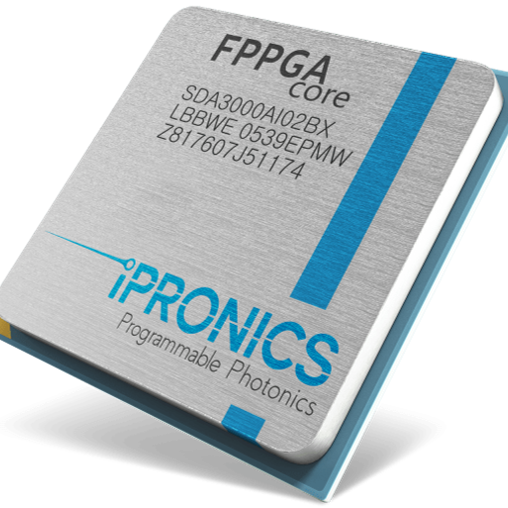
The Fraunhofer-Gesellschaft based in Germany is the world’s leading applied research organization.
LEARN MOREFraunhofer IZM
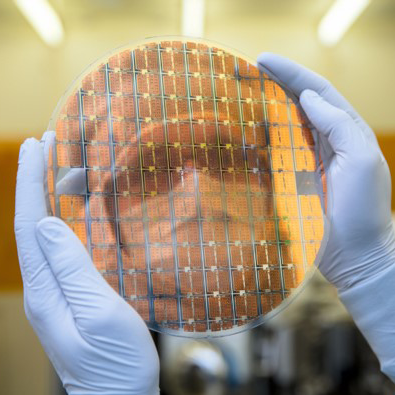
At IBM Research, we invent things that matter to the world. Today, we are pioneering the most promising and disruptive technologies that will transform industries and society.
LEARN MOREIBM Research GMBH
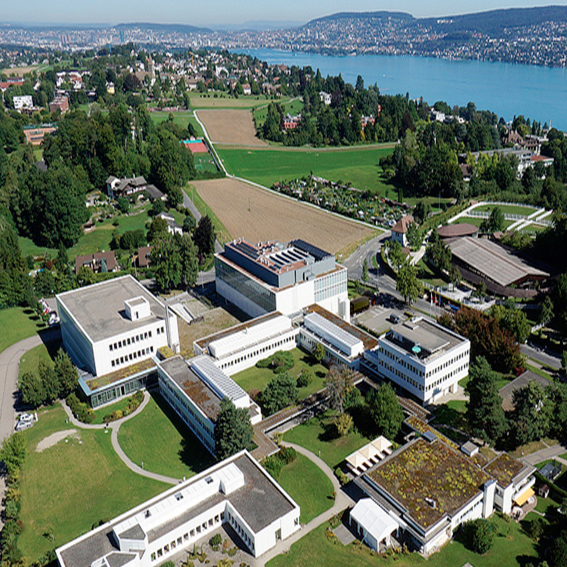
Lumiphase is a Swiss start-up founded in 2020 and is the leading manufacturer for silicon photonic chips enhanced with BaTiO3 technology.
LEARN MORELumiphase AG

CEA (Atomic Energy Commission) is a French Governmental Research Organization (15000 employees) devoted to both fundamental and industrial R&D.
LEARN MORECEA
Atomic Energy Commission (France)
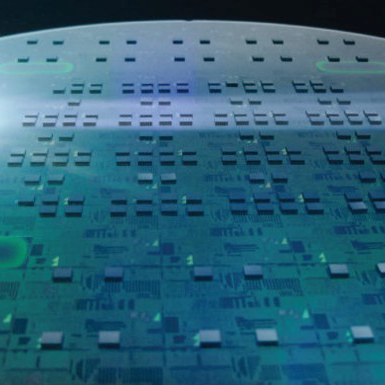
UGent is an academic institution with a longstanding tradition of fostering industrial innovation and exploiting in-house technologies.
LEARN MOREGhent University
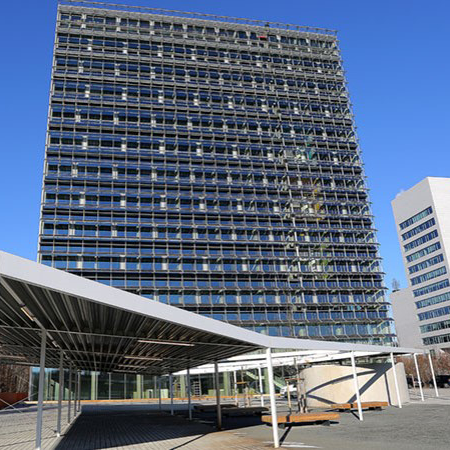
QTI s.r.l. (Quantum Telecommunications Italy) is the first Italian Quantum Key Distribution (QKD) company, providing industrial grade systems and products for quantum networks.
LEARN MOREQTI
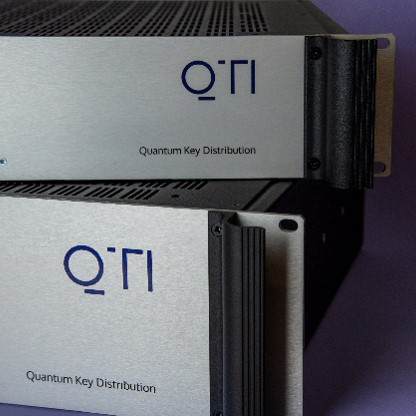
SCINTIL Photonics is a fabless company developing and supplying Augmented Silicon Photonics with integrated lasers, for ultimate optical connectivity in Data Centers, Cloud HPC and 5G infrastructure.
LEARN MOREScintil
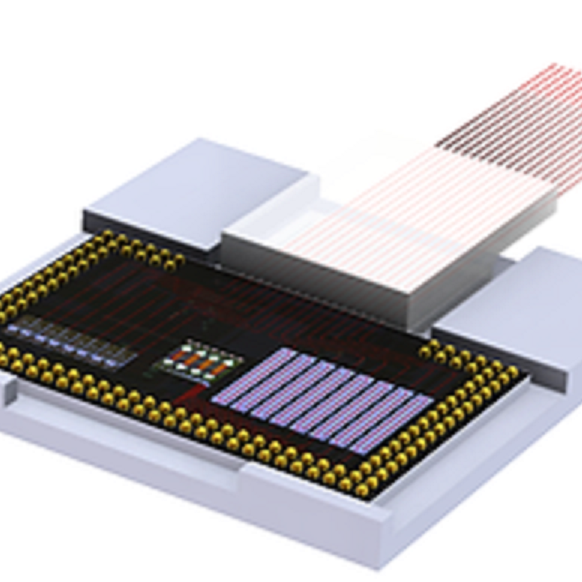
Computer and Communication Systems Laboratory (CCSL) University of the Aegean, department of Information and Communication Systems Engineering
LEARN MOREUniversity of Aegean
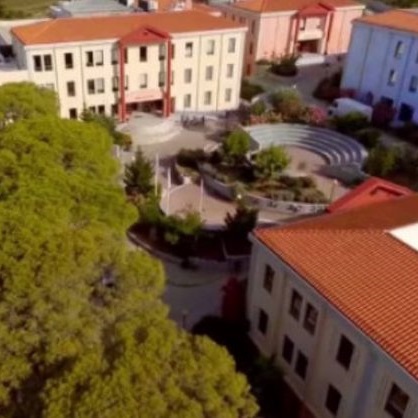
iniVation creates high-performance neuromorphic vision systems for demanding real-time applications.
LEARN MOREInivation
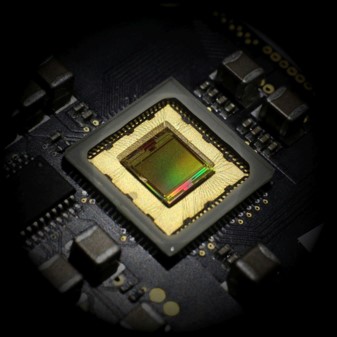
The Technical University of Denmark (Danmarks Tekniske Universitet; DTU) is ranked as one of the foremost technical universities in Europe, continues to set new records in the number of publications, and persistently increase and develop our partnerships with industry, and assignments accomplished by DTU’s scientific advice.
LEARN MOREDTU
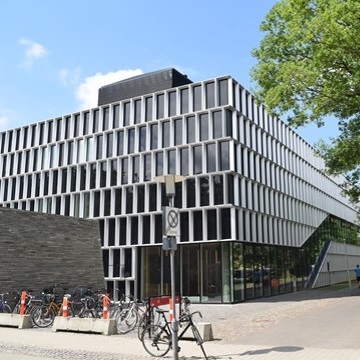
The Parallel and Distributed Systems and Networks (PDSN) Lab is a newly established research entity belonging to the Department of Informatics and Computer Engineering of the University of West Attica.
LEARN MOREUniversity of West Attica
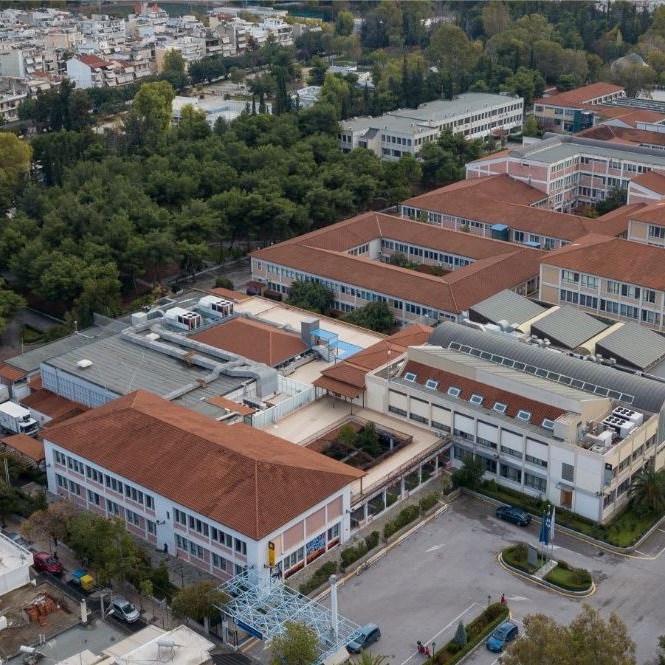

iPronics is a startup from the university of Valencia, pioneering the field of Programmable photonics. Our main goal is to immediately re-define the workflow of application specific photonic integrated circuit (ASPIC) design by emulating and refining ASPIC functions in a programmable chip before the final design is manufactured. This will cut ASPIC non-recurring engineering costs and product innovation cycles currently measured in years down to the order of months and enable new applications and functionalities including 5/6 G communications, intelligent transceivers, IoT-driven industry 4.0, switching engines and hardware accelerators for edge and cloud data centers, tensor cores for machine learning and neuromorphic computing, lidar and aerospace surveillance and communications, as well as signal processing operations for sensor interrogation and high-performance spectral analysis

The Fraunhofer-Gesellschaft based in Germany is the world’s leading applied research organization. Prioritizing key future-relevant technologies and commercializing its findings in business and industry, it plays a major role in the innovation process. A trailblazer and trendsetter in innovative developments and research excellence, it is helping shape our society and our future. Founded in 1949, the Fraunhofer-Gesellschaft currently operates 76 institutes and research units throughout Germany. Over 30,000 employees, predominantly scientists and engineers, work with an annual research budget of €2.9 billion.
As part of the Fraunhofer-Gesellschaft, Fraunhofer IZM specializes in applied and industrial contract research. Fraunhofer IZM’s focus is on packaging technology and the integration of multifunctional electronics into systems. The institute has a staff of more than 430 and saw a turnover of 35,7 million euros in 2019, of which 41,8 percent was earned through contract research. Fraunhofer IZM has two sites in Germany. Apart from its headquarters near Berlin Mitte, the institute is also represented in Dresden and Cottbus, strategically important centers for electronic development and manufacturing.
The four Fraunhofer IZM departments promote internationally cutting-edge technology development. The departments jointly work on application areas and key development topics, ensuring the research is advanced across technologies. In key development topics, the Fraunhofer IZM researchers monitor and develop highly promising research questions, paving the way for future projects with industry.
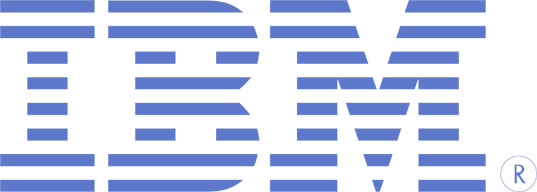
At IBM Research, we invent things that matter to the world. Today, we are pioneering the most promising and disruptive technologies that will transform industries and society. We are driven to discover. IBM Research – Zurich is one of IBM’s 12 research labs, which includes 3,000 scientists on six continents.
The spectrum of research activities ranges from exploratory research in areas such as quantum systems, neuromorphic computing and nanoscience as the basis for future computing technology, to cloud computing and storage, cognitive computing and systems, systems biology, cybersecurity and privacy and most recently blockchain. In 2011, a new facility for collaborative nanoscale research was opened on the IBM campus — the Binnig and Rohrer Nanotechnology Center. The Center is part of a strategic partnership in nanosciences with ETH Zurich, one of the world’s foremost science and engineering universities.

Lumiphase is a Swiss start-up founded in 2020 and is the leading manufacturer for silicon photonic chips enhanced with BaTiO3 technology. This technology brings integrated photonics into a new era, characterized by the introduction of innovative materials with unique electro-optic properties into the cost-effective silicon photonics platform.
Our target clients are optical component and network equipment vendors, supplying equipment used to build datacenter and telecom networks. Lumiphase was created by former employees of IBM Research Europe who pioneered this research field and developed it to a high level of maturity. The company has setup an ambitious development plan and operates at a world-class 1000 square meter cleanroom and runs an R&D laboratory and production facility in Switzerland, enabling fundamental research programs up to high quality production. The involvement of Lumiphase in the European R&D network is essential for the development of the company. It is facilitated by the long experience of the Lumiphase’s key personal in many EU projects, from FP5 to H2020 framework, as well as for ECSEL initiatives.

CEA (Atomic Energy Commission) is a French Governmental Research Organization (15000 employees) devoted to both fundamental and industrial R&D. Within CEA, the Laboratory for Electronics & Information Technology (CEA-LETI) is focused on micro and nanotechnologies and their applications, from wireless devices and systems to photonics, biology and healthcare. Founded in 1967, CEA-LETI is a French technology research institute that pioneers micro- & nanotechnologies, with 8500 m² of cleanroom space and a clear IP policy. The typical maturity level of Leti’s activity is within TRL3 and TRL6. Grenoble area – CEA-LETI’s location – gathers a dozen of leading industrial companies and startups providing microelectronics and photonics solutions – such as STMicroelectronics, SOITEC, Sofradir, ULIS, Aledia, Microoled, Mirsense, eLichens, most of them being startups of CEA-LETI. CEA-LETI also has staff in the Silicon Valley and Tokyo.

UGent is an academic institution with a longstanding tradition of fostering industrial innovation and exploiting in-house technologies. This claim is solidified by the growing portfolio of international patents that UGent holds on the field of photonic neuromorphic engineering (6 PCT patents) and by the growing number of spin-off SMEs that used the academic help of UGent to take off. In this context, UGent will take up an active approach towards standardizing the photonic-FPGA platform as neuromorphic processing platform, positioning UGent as the leading expert in the field. Finally, UGent will also have the opportunity to attract promising PhD students and researchers and thus increase the academic momentum of neuromorphic processing.
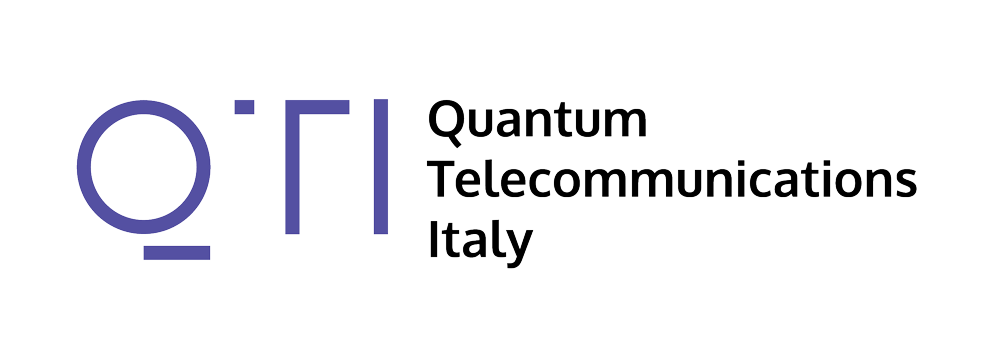
QTI s.r.l. (Quantum Telecommunications Italy) is the first Italian Quantum Key Distribution (QKD) company, providing industrial grade systems and products for quantum networks.
Headquartered in Florence, QTI is a young Italian start-up founded in October 2020 by a group of entrepreneurs, scientists, and researchers, associated with the Italian National Institute of Optics of the National Research Council (CNR). The company engineers, develops, and produces reconfigurable QKD architectures thanks to the work of a team of quantum experts and entrepreneurs, with the vision of spreading the use of quantum technologies in industry, government, and military organizations to guarantee the ultimate security of digital communications.
In 2021, part of the company’s shares has been acquired by Telsy S.p.A., cybersecurity and cryptography competence centre of the TIM Group. This partnership has allowed the development of a fully entrusted end-to-end encryption system, compatible with current telecommunication infrastructure for civil and military applications.
From its foundation, QTI has contributed with its experts to majo tests and experiments for the implementation of QKD at national and European levels. Among others, they contributed to the field trial of a three-state quantum key distribution scheme in Florence metropolitan area, in the framework of the Italian Quantum Backbone. In August 2021, QTI experts supported the implementation of the first public demonstration of an intergovernmental quantum communication between three nodes (Trieste, Ljubljana and Rijeka), during the Digital Ministers’ Meeting of the G20.
QTI is member of the European Photonics Industry Consortium (EPIC), the European Quantum Industry Consortium (QuIC), and Optica.
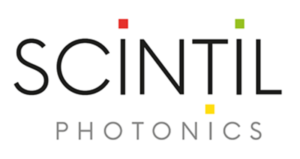
SCINTIL Photonics is a fabless company developing and supplying Augmented Silicon Photonics with integrated lasers, for ultimate optical connectivity in Data Centers, Cloud HPC and 5G infrastructure.
Its solution combines the best of Silicon (Si) and Indium Phosphide (InP) photonics using wafer-scale bonding of III-V on Si. And it uses commercial silicon photonic foundry to mass-produce its Augmented Silicon Photonic Integrated Circuits (PIC).
SCINTIL’s technology draws upon over 15 years of research in lasers, silicon photonics, and 3D packaging carried out at CEA-Leti, a world-leading semiconductor research institute. Its unique technological solution enables an extensive integration of active and passive optical components, while improving performances and reliability, it significantly reduces implementation costs.
Besides high-speed optical communications, SCINTIL’s technology promises great advantages in 3D Sensing and Quantum Photonics applications.
Based in Grenoble, France and Toronto, Canada, SCINTIL is currently taking its innovative technology to an industrial level as it gears up for mass production.

It was founded in 1999 as a research and educational unit focusing on the design and implementation of RF and photonic components of the ICT infrastructure, tailored to the needs of emerging digital services. The lab’s members comprises 8 professors, 20 Ph.D students and numerous MSc. level students. The members of the lab have been actively engaged in more than 20 EU (FP6, FP7 H2020, IEF Marie Curie etc.) and 30 National research projects, whereas 3 research projects focus specifically on neuromorphic technologies. CCSL technological capabilities can be summarized by the fact that is accredited by ELOT EN ISO/IEC 17025:2005 Certificate for Electric Field Measurements in the frequency band of 75MHz – 3GHz, whereas CCSL, has direct access to Greece’s supercomputer infrastructure for performing massively parallel simulations. In the context of NEoteRIC, CCSL strongly collaborates with the parallel and distributed systems and networks lab (PDSN) of University of West Attica forming a joint research unit specializing on photonic neuromorphic systems, dedicated machine-learning hardware and physical layer security. Finally, CCSL and PDSN are currently building a joint high-speed photonic research laboratory with electro-optic measurement equipment operating up to 20GHz suitable for photonic integrated chip characterization. More importantly CCSL and PDSN are currently realizing a state-of-the-art Serial Time-Encoded Amplified Microscope (STEAM) system tailored to the demands of NIR high speed cytometry and is developing an experimental platform for integrating imaging modalities with neuromorphic photonic integrated modules.
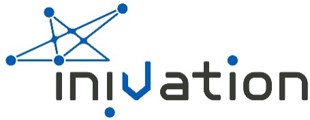
iniVation creates high-performance neuromorphic vision systems for demanding real-time applications.
The bio-inspired intelligent technology offers unprecedented advantages over conventional machine vision systems: ultra-low response latency, low data rates, high dynamic range and ultra-low power consumption.
Founded by the inventors of event-based vision, iniVation combines decades of world-leading R&D experience with a deep network of customers and partners across multiple industrial markets. Customers include global top-10 companies in automotive, consumer electronics and aerospace.

The Technical University of Denmark (Danmarks Tekniske Universitet; DTU) is ranked as one of the foremost technical universities in Europe, continues to set new records in the number of publications, and persistently increase and develop our partnerships with industry, and assignments accomplished by DTU’s scientific advice. DTU Electro has 320 employees with competencies in optics and is one of the largest centers in the world based solely on research in photonics and electronics. Our photonics research is performed within optical sensors, lasers, LEDs, photovoltaics, ultra-high speed optical transmission systems, bio-photonics, nano-optics, and quantum photonics.
Key Research Facilities, Infrastructure, and Equipment
The experimental facilities of DTU Electro include an optical communication lab, a quantum lab, and a high-performance computing cluster. The optical communication lab is equipped with high-speed RF electronics such as arbitrary waveform generators and oscilloscopes, bit-error-rate testers, and signal analyzers. The quantum lab is equipped with state-of-the-art equipment such as fiber-lasers and high-power pulsed femtosecond lasers, superconductive and InGaAs single-photon detectors, time taggers, and optical probe stations for photonic integrated chip characterization. The computing cluster includes 60+ servers with state-of-the-art multi-core CPUs and GPUs.
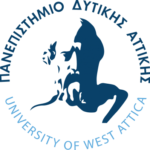
- Optical communications and networks
- Optical interconnect technologies for data centers and distributed systems
- High performance optical communication systems
- Photonic devices for communication/sensing/computing purposes
- All-optical networking
- Wireless Communications
- Physical layer communication schemes
- Signal processing focused on high speed communication systems
- CyberSecurity
- Intrusion Detection
- Authentication techniques in distributed systems
- Hardware security







